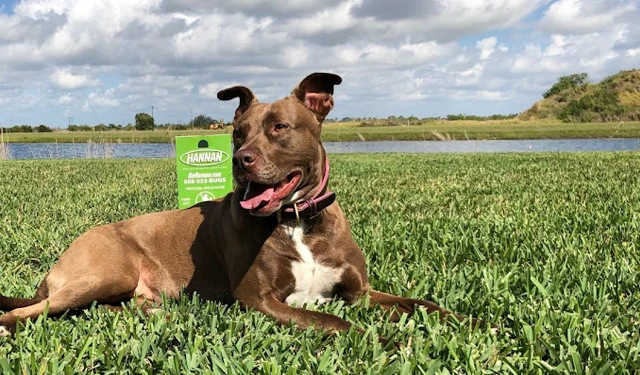Pharaoh Ant Overview & Quick Facts
Keep ants out of your home or business with
effective identification and control strategies.

A Closer Look at Pharaoh Ants
Tiny but mighty, Pharaoh Ants are notorious for being one of the hardest ants to control indoors. With their pale yellow color and stealthy behavior, these ants form massive colonies and can become a serious nuisance — especially in hospitals, apartments, restaurants, and residential homes.
🔍 What Do Pharaoh Ants Look Like?
-
Color: Light yellow to reddish with a darker abdomen
-
Size: Very small — about 1.5 to 2 mm (1/16 inch)
-
Features:
-
Two-segmented waist
-
Antennae with 12 segments and a three-segmented club
-
No stinger, but they can bite (harmless)
-
Their small size and light color make them easy to overlook — until you see them marching in trails along countertops or walls.
🏠 Where Do Pharaoh Ants Live?
Pharaoh Ants prefer warm, humid environments, especially indoors:
-
Indoors:
-
Wall voids, baseboards, behind appliances
-
Near sinks, water heaters, and food sources
-
Hospitals, grocery stores, and residential kitchens
-
-
Outdoors: Rarely survive long-term; they are primarily indoor pests
They’re notorious for nesting in inaccessible locations and building multiple satellite colonies, which makes them hard to eliminate.
🍬 What Do Pharaoh Ants Eat?
Pharaoh Ants are omnivores and scavengers:
-
Sugars: syrups, fruit, soda, sweets
-
Proteins: meat, grease, dead insects, pet food
-
Thrive on almost any food left out
This diverse diet makes them common invaders in homes, restaurants, and hospitals.
⚠️ Why Are Pharaoh Ants a Problem?
-
Form enormous colonies with multiple queens
-
Spread quickly by budding — splitting into new colonies when disturbed
-
Can contaminate food and sterile surfaces
-
In medical settings, they have been known to invade wounds, IV lines, or medical equipment
Their ability to spread and relocate makes DIY treatments risky — improper pesticide use may cause colonies to scatter and multiply.
🧠 Behavior & Colony Facts
-
Colonies often contain thousands of ants
-
Use chemical trails to guide foraging
-
Can reproduce year-round indoors
-
Known for building hidden nests deep within structures
🧠 Fun Fact!
Pharaoh Ants were named because they were mistakenly believed to be one of the plagues of ancient Egypt — but in reality, they’re a modern pest with a global presence.
Frequently Asked Questions
About Pharaoh Ants
What are Pharaoh Ants?
Pharaoh Ants are tiny, pale yellow ants known for their ability to form massive colonies indoors. They’re persistent pests that infest homes, hospitals, restaurants, and grocery stores — often nesting in hidden, hard-to-reach areas.
What do Pharaoh Ants look like?
-
Color: Light yellow to reddish with a darker abdomen
-
Size: Small — about 1.5–2 mm (1/16 inch)
-
Features:
-
Two-segmented waist
-
12-segmented antennae with a 3-segmented club
-
No stinger, but they can bite (harmless)
-
Where do Pharaoh Ants live?
-
Primarily indoors, especially in:
-
Wall voids, baseboards, behind cabinets
-
Near water heaters, sinks, or electrical outlets
-
-
Can nest in hospitals, schools, apartments, and homes
-
Outdoors nests are rare and short-lived
Do Pharaoh Ants bite or sting?
-
✅ Can bite, but it’s not painful or medically significant
-
❌ They do not sting
Are Pharaoh Ants dangerous?
-
❌ Not directly harmful to humans
-
✅ But they are a serious nuisance and contamination risk, especially in:
-
Food prep areas
-
Hospitals (they can crawl into wounds, IV lines, or equipment)
-
Stored goods and packaging
-
They’re also difficult to eliminate due to multiple queens and nest sites.
What do Pharaoh Ants eat?
Pharaoh Ants are omnivores:
-
Sugars: syrups, sweets, fruit
-
Proteins: meats, oils, dead insects
-
They’ll eat just about anything left out
Why are Pharaoh Ants so hard to get rid of?
-
Colonies have multiple queens
-
They reproduce quickly and form satellite colonies
-
DIY sprays may cause colonies to “bud” and scatter, making the problem worse
-
Their nests are hidden in hard-to-reach places
Professional treatment is strongly recommended for long-term control.
How can I prevent Pharaoh Ants?
-
Seal cracks and entry points around windows, doors, and pipes
-
Keep food sealed and clean up spills right away
-
Fix leaks to reduce indoor moisture
-
Avoid using over-the-counter sprays, which can cause colony budding
Struggling with ants in your home, yard, or business? Hannan Environmental Services offers expert ant control and prevention throughout South Florida. Our trained technicians provide safe, effective, and long-lasting solutions to keep your home pest-free. Contact us today for reliable service you can trust! Feel free to also reach out to Hannan Environmental Services on Facebook!

